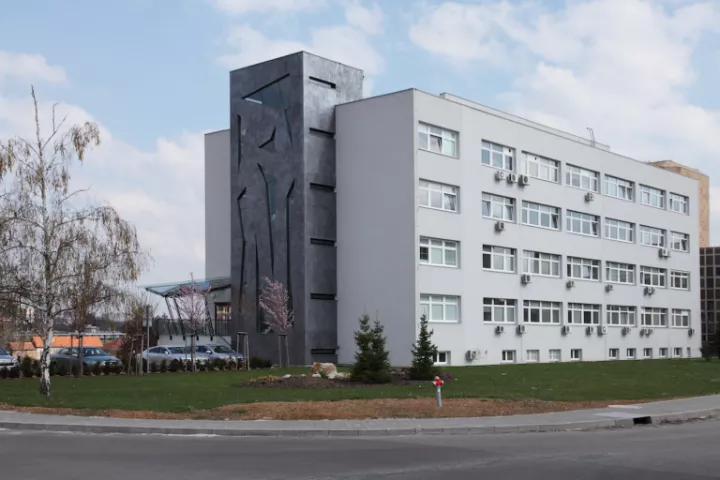INSTITUTE OF EXPERIMENTAL MEDICINE OF THE CAS
Institute of Experimental Medicine CAS (IEM), founded in 1975, belongs to the group of institutions of the Czech Academy of Sciences focused on biomedical research.
At present, IEM consists of ten research departments and one research center focusing on a broad range of topics including research in biochemistry, cell and developmental biology, pathology, molecular embryology, genetic toxicology and nanotoxicology, neurobiology, neurophysiology, neuropathology, oncology, immunology, tissue replacement, and nanomedicine. Specifically, the research groups investigate the early embryogenesis of mammals, the change in the plasticity of the cell nucleus and the genetic regulation of embryonic development. Molecular, physiological and pathological changes in nervous cells are studied in projects focused on the morphological and electrophysiological properties of glial cells in disorders, such as focal cerebral ischemia, amyotrophic lateral sclerosis, Alzheimer's disease, schizophrenia, and tumorigenesis and by investigating N-methyl-D-aspartate receptors in mammalian neurons under normal and pathological conditions. IEM further focuses on research of mechanisms of development of various diseases: CNS, including brain and spinal cord injuries, and neurodegenerative disorders; the molecular characteristics of cancer, especially of the colon and rectum; the mechanisms of audiological disorders. The lateral arrangement of biological membranes into microdomains, particularly in their involvement in the regulation of cellular processes in response to environmental stimuli, development of artificial tissues and the technology of controlled drug delivery from nano/microfiber scaffolds with liposomes for the targeted release of drugs, toxicity of airborne nanoparticles and fine particles in humans and lung cell models, as well as stem cells and their role in the healing and regeneration of damaged tissues are also studied.
The focus of IEM in the EATRIS infrastructure is mainly, but not only in the domain of advanced therapy medicinal products (ATMPs). IEM has the expertise and technologies that enable to perform research and commercial projects of basic and applied research in the development of ATMPs. IEM is accredited for the work with genetically modified organisms (in the first and second risk categories), embryonic stem cells and for the use of experimental animals (mouse, rat, guinea pig). Animal models focus on spinal cord injury, stroke and cerebral ischemia, healing of skin, bone, cartilage and cornea defects, as well as models of neurodegenerative diseases such as Alzheimer's disease and dementia.
Using the stem cell models we aim to develop in vitro 3D models for drug testing and brain tumor research, as well as to study the role of exosomes in the regeneration of spinal cord injuries or the microenvironment of gliomas. We are also developing diagnostic methods to determine the severity of spinal cord injuries in patients. We further focus on preparation of artificial tissues and nano/microfiber scaffolds for the targeted drug release, as well as their application for the regeneration of bone and cartilage in clinical practice. Another component of our research is the testing of nanomaterials and the evaluation of the potential negative effects of nanoparticles on human health using advanced molecular techniques. We also test nanoparticles, in combination with stem cells, for treatment of eye and skin injuries in experimental models.
Breeding of animals and experiments are conducted under conventional or IVC conditions. For these purposes, a new facility for breeding has been established. For the state-of-the-art analyses of the brain activity, cell morphology and spatial gene expression, new equipment, including a macroscopic system for imaging the activity of the cerebral cortex, a system for studying changes in cell morphology and their behavior, an EEG system and a system for spatial gene expression analysis have been obtained.


